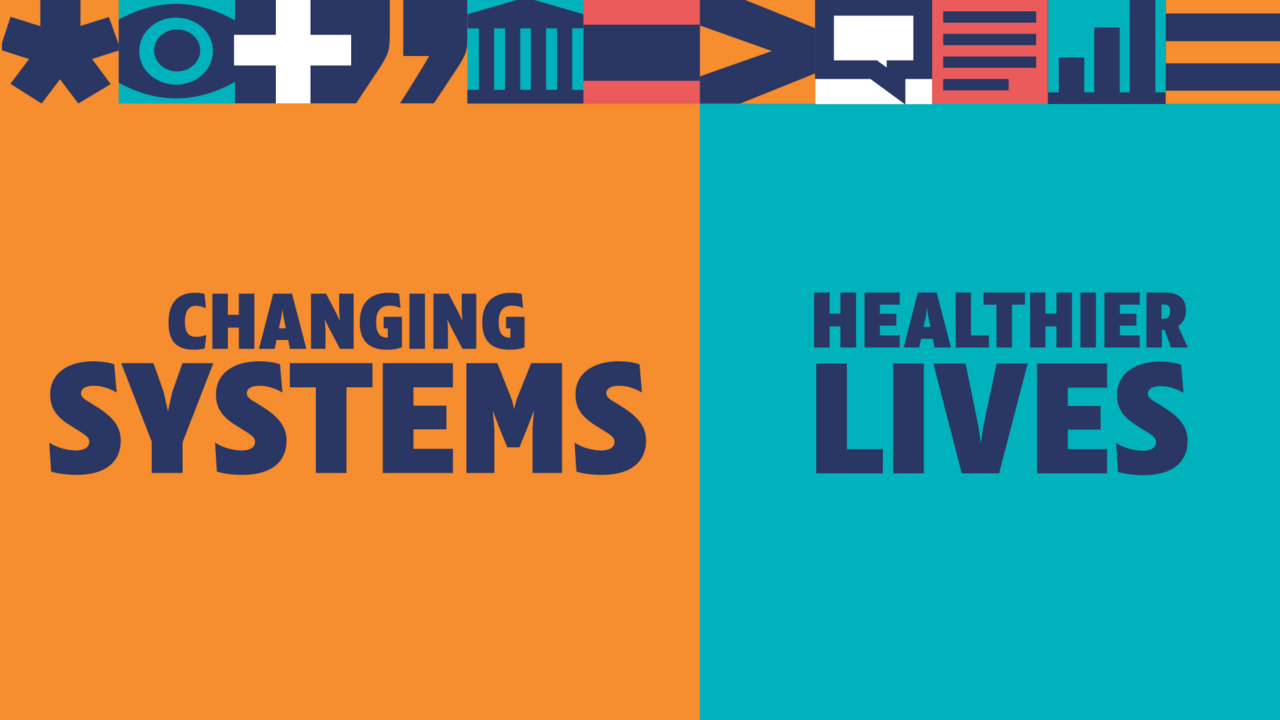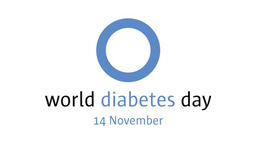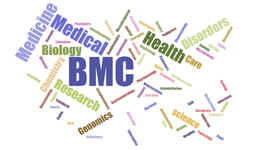World Obesity Day 2025: Changing Systems Healthier Lives
Published in Healthcare & Nursing, Sustainability, and Biomedical Research

Led by the World Obesity Federation, World Obesity Day is held every year on 4th March to advocate for global improvements in the understanding, prevention and treatment of obesity, and to amplify and share the lived experiences of people living with obesity.
This year’s theme is ‘Changing Systems Healthier Lives’, putting onus on the systems that directly influence the drivers of obesity and related chronic diseases to act, including our healthcare services, governments, food systems, media, and our workplaces and communities.
We would like to share articles, collections, and content selected by our publishers that supports this objective, aligning with our commitment to support and amplify the Sustainable Development Goals (SDGs), specifically SDG 3: "Ensure healthy lives and promote well-being for all at all ages", and the related key targets.
Collections
Scientific Reports are currently welcoming submissions to collections on Childhood obesity and Obesity and medical management, encouraging research that improves our medical understanding of obesity and the ability of our health services to provide care.
A collection at BMC Medicine on food environments and health places focus on how policies, regulations, and marketing impact the availability of healthy and unhealthy foods, and how individual food choices are influenced.
Diabetology & Metabolic Syndrome are also exploring the impact of modern society on human metabolism and obesity, in a call for papers on The effects of modern lifestyle dynamics, nutrition, and industrial compounds on human metabolism.
Research Highlights
The importance of health services in the early identification of obesity is emphasised in a study in BMC Primary Care that found that routinely recording body mass index (BMI) is not common practice by GPs in the Netherlands. The potential of the electronic health data managed by health services in improving obesity outcomes is further explored by a trial registered in the ISRCTN registry that aims to assess whether AI can help doctors identify children at risk of obesity, and in turn improve treatment outcomes and decision-making.
Schools also play a key role in preventing obesity in children and in later life. The outcomes from a systematic review published in Implementation Science Communications provide guidance for intervention developers, staff, and researchers looking to implement school-based interventions to reduce obesity in children with low socioeconomic status. Relatedly, an article in BMC Medicine considers the possible impact of creating ‘takeaway management zones’ around schools on improving long-term health outcomes.
The role of the work environment is also explored by an article in BMC Public Health which identifies a correlation between obesity and occupational noise exposure. A study in BMC Pediatrics also explores whether supporting parents in the home environment with Family Based Behavioural Treatments can have a favourable impact on the long-term BMI evolution of adolescents.
Books Chapters on Obesity
Contributions that emphasise the importance of systems in taking action on obesity can also be found in our books portfolio.
A chapter on ‘The Global Pandemic of Overweight and Obesity’ in the Handbook of Global Health pays attention to how health systems in different parts of the world address obesity and provides an examination of obesity as a disease and risk factor for conditions.
A contribution to Human Growth and Nutrition in Latin American and Caribbean Countries also analyses data collected from a series of national health surveys conducted in Brazil, identifying socioeconomic and ethnic disparities in nutritional status patterns.
Research Communities Blogs
In support of this year’s campaign, our authors, researchers and editors have also shared their own perspectives on rethinking our current approaches and systems for addressing obesity in a series of blogs now available on the Research Communities.
In a joint post, the Editors-in-Chief of the International Journal of Obesity voice their support for World Obesity Day, sharing insights and recent collections that demonstrate the progress made in obesity science. A News and Opinion post by Christa Meisinger, one of the Editors-in-Chief for Lipids in Health and Disease, calls for increased focus within the research community on developing tailored interventions for obesity, considering the recent advancements in genomics, metabolomics and precision medicine. In an accompanying blog, the Review Editor, Gregory Henderson details the relationship between obesity and poor blood glucose regulation, with the release of fatty acids into the blood from fat tissue likely increasing the risk of pre-diabetes and diabetes.
In another Behind the Paper blog, Dana Ivancovsky Wajcman, Jeffrey V Lazarus & Shira Zelber Sagi discuss the motivations for their recent review in Nature Reviews Gastroenterology & Hepatology in that explores the complex relationship between obesity, food insecurity, and liver disease, emphasising the need for strengthened research efforts and a multi-level approach for reducing the global burden of metabolic dysfunction-associated steatotic liver disease. Cristina Sena also highlights the role of perivascular adipose tissue in vascular health.
From a clinical perspective, Charlotte Aldbury stresses the importance of communication between healthcare professionals and people living with obesity for improved outcomes. Zanab Malik also explores the barriers people living with severe obesity face when seeking dental care, identifying that revised guidelines, education, and environmental changes in the clinic may support improved oral health outcomes for this vulnerable patient group. Finally, a contribution from the BIO-STREAMS project team outlines their objectives for developing a digital biobank and digital inverventions for approaching childhood obesity.
Conclusion
To find out more about World Obesity Day and join the campaign, please visit the official website to find out how you can increase awareness, become an advocate, and read and share experiences from the global community.
Follow the Topic
-
BMC Medicine

This journal publishes outstanding and influential research in all areas of clinical practice, translational medicine, medical and health advances, public health, global health, policy, and general topics of interest to the biomedical and sociomedical professional communities.
-
Nature Reviews Gastroenterology & Hepatology

The basic, translational and clinical content in this journal is written by internationally renowned basic and clinical academics and researchers and targeted towards readers in the biological and medical sciences, from postgraduate level upwards.
-
Scientific Reports

An open access journal publishing original research from across all areas of the natural sciences, psychology, medicine and engineering.
-
Implementation Science Communications

An official companion journal to Implementation Science and a forum to publish research relevant to the systematic study of approaches to foster uptake of evidence based practices and policies that affect health care delivery and health outcomes, in clinical, organizational, or policy contexts.
-
BMC Primary Care

Previously known as BMC Family Practice, this is an open access, peer-reviewed journal that considers articles on all aspects of primary health care research.
-
ISRCTN: The UK’s Clinical Study Registry

A primary clinical trial registry recognised by WHO and ICMJE that accepts studies involving human subjects or populations with outcome measures assessing effects on human health and well-being, including studies in healthcare, social care, education, workplace safety and economic development.
-
BMC Public Health

An open access, peer-reviewed journal that considers articles on the epidemiology of disease and the understanding of all aspects of public health.
-
International Journal of Obesity

This is a multi-disciplinary forum for research describing basic, clinical and applied studies in biochemistry, physiology, genetics and nutrition, molecular, metabolic, psychological and epidemiological aspects of obesity and related disorders.
-
Cardiovascular Diabetology

This journal considers manuscripts on all aspects of the diabetes/cardiovascular interrelationship and the metabolic syndrome; this includes clinical, genetic, experimental, pharmacological, epidemiological and molecular biology research.
-
Diabetology & Metabolic Syndrome

This journal publishes articles on all aspects of the pathophysiology of diabetes and metabolic syndrome.
-
BDJ Open

This is an international, peer-reviewed, open-access, online-only journal publishing dental and oral health research from all disciplines. The journal is owned by the British Dental Association (BDA) and is the sister journal of the British Dental Journal.
-
BMC Pediatrics

This is an open access journal publishing peer-reviewed research articles in all aspects of health care in neonates, children and adolescents, as well as related molecular genetics, pathophysiology, and epidemiology.
-
Lipids in Health and Disease

Lipids in Health and Disease is an open access, peer-reviewed journal that publishes articles on all aspects of lipids: their interaction with proteins, pharmacology, toxicology, natural products chemistry, role in health and disease, and enzyme systems involved in lipid metabolism.
Related Collections
With Collections, you can get published faster and increase your visibility.
Obesity
Publishing Model: Hybrid
Deadline: Apr 24, 2026
Advances in pediatric ADHD and ASD research
BMC Pediatrics is calling for submissions to our Collection, Advances in pediatric ADHD and ASD research. Attention Deficit Hyperactivity Disorder (ADHD) and Autism Spectrum Disorders (ASD) are two distinct neurodevelopmental conditions that often co-occur or have similar clinical presentations, posing a unique set of challenges for diagnosis, intervention and management. Enhancing our understanding of ADHD and ASD is crucial not only for advancing clinical practices but also for improving the quality of life for affected children and their families.
We invite submissions that explore the complex interplay of genetic, environmental, and psychosocial factors influencing these conditions and inspire effective interventions, and management. Key topics of interest include, but are not limited to:
Genetic mechanisms of childhood ADHD and/or ASD
Early diagnostic methods
Innovative interventions
Effective management strategies that benefit the affected families
This Collection supports and amplifies research related to SDG 3: Good Health and Well-being.
All manuscripts submitted to this journal, including those submitted to collections and special issues, are assessed in line with our editorial policies and the journal’s peer review process. Reviewers and editors are required to declare competing interests and can be excluded from the peer review process if a competing interest exists.
Publishing Model: Open Access
Deadline: Mar 24, 2026





Please sign in or register for FREE
If you are a registered user on Research Communities by Springer Nature, please sign in